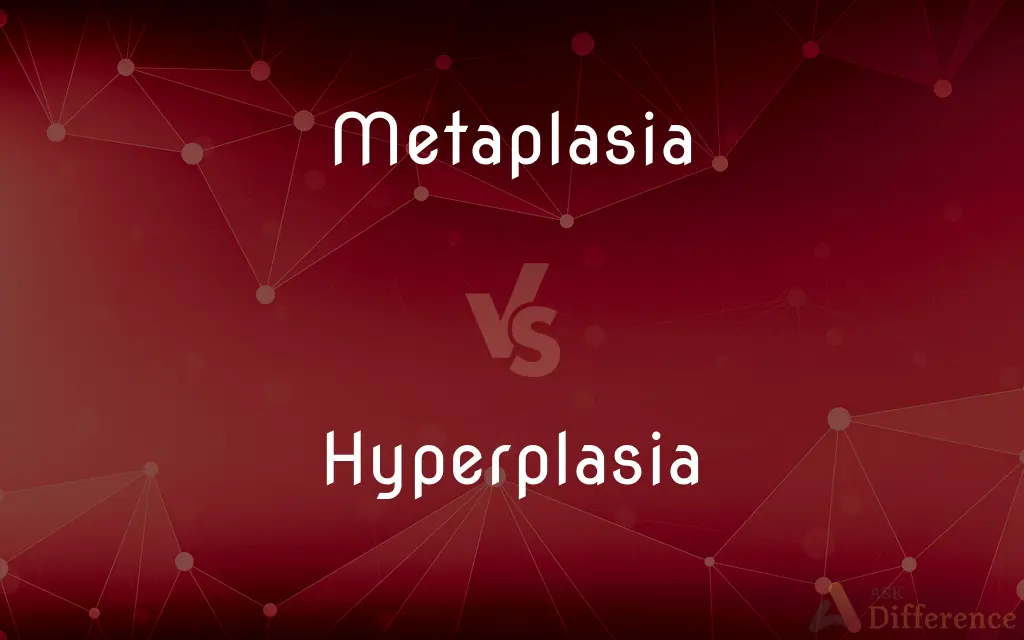Metaplasia vs. Hyperplasia — What's the Difference?

Difference Between Metaplasia and Hyperplasia
ADVERTISEMENT
Compare with Definitions
Metaplasia
Metaplasia (Greek: "change in form") is the transformation of one differentiated cell type to another differentiated cell type. The change from one type of cell to another may be part of a normal maturation process, or caused by some sort of abnormal stimulus.
Hyperplasia
Hyperplasia (from ancient Greek ὑπέρ huper 'over' + πλάσις plasis 'formation'), or hypergenesis, is an increase in the amount of organic tissue that results from cell proliferation. It may lead to the gross enlargement of an organ, and the term is sometimes confused with benign neoplasia or benign tumor.Hyperplasia is a common preneoplastic response to stimulus.
Metaplasia
Normal transformation of tissue from one type to another, as in the ossification of cartilage to form bone.
Hyperplasia
An abnormal increase in the number of cells in a tissue or organ, with consequent enlargement of the part or organ.
Metaplasia
Transformation of cells from a normal to an abnormal state.
ADVERTISEMENT
Hyperplasia
(medicine) An increase in the size of a tissue or organ due to increased number of cells.
Metaplasia
(biology) The conversion of one type of tissue into another.
Hyperplasia
An increase in, or excessive growth of, the normal elements of any part.
Hyperplasia
Abnormal increase in number of cells
Share Your Discovery

Previous Comparison
Connotation vs. Dove
Next Comparison
Esophagus vs. Oesophagus













































